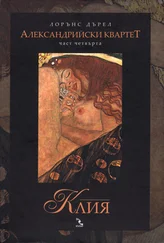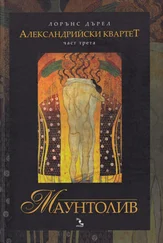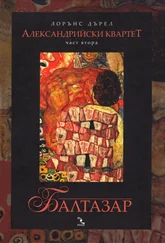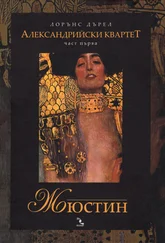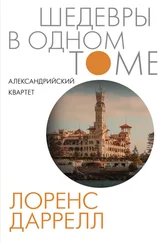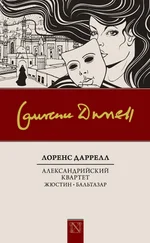Лоренс Даррелл - Prospero's Cell
Здесь есть возможность читать онлайн «Лоренс Даррелл - Prospero's Cell» весь текст электронной книги совершенно бесплатно (целиком полную версию без сокращений). В некоторых случаях можно слушать аудио, скачать через торрент в формате fb2 и присутствует краткое содержание. Жанр: Проза, на английском языке. Описание произведения, (предисловие) а так же отзывы посетителей доступны на портале библиотеки ЛибКат.
- Название:Prospero's Cell
- Автор:
- Жанр:
- Год:неизвестен
- ISBN:нет данных
- Рейтинг книги:4 / 5. Голосов: 2
-
Избранное:Добавить в избранное
- Отзывы:
-
Ваша оценка:
- 80
- 1
- 2
- 3
- 4
- 5
Prospero's Cell: краткое содержание, описание и аннотация
Предлагаем к чтению аннотацию, описание, краткое содержание или предисловие (зависит от того, что написал сам автор книги «Prospero's Cell»). Если вы не нашли необходимую информацию о книге — напишите в комментариях, мы постараемся отыскать её.
Prospero's Cell — читать онлайн бесплатно полную книгу (весь текст) целиком
Ниже представлен текст книги, разбитый по страницам. Система сохранения места последней прочитанной страницы, позволяет с удобством читать онлайн бесплатно книгу «Prospero's Cell», без необходимости каждый раз заново искать на чём Вы остановились. Поставьте закладку, и сможете в любой момент перейти на страницу, на которой закончили чтение.
Интервал:
Закладка:
In the middle of this discourse we are joined by Nimiec and Peltours who take an innocent delight in teasing Zarian; meanwhile the little Ivan is dancing about like a wasp waiting for it to get dark. As we have some shopping to do N. and I move off about our business with a promise to meet at 'The Partridge' for a glass of wine before we all go on to the shadow-play.
The shadows hang deep in the arcades by the little shop of Nomikos the bookbinder. He is binding some sketch-books for us. Farther down in what we call the Street of Smells, the ghosts of various dishes are being conjured up in great copper cauldrons: fish, sweetmeats, bread, onions.
The northerners are down for a dance; I catch a glimpse of Father Nicholas bending over a stall and haggling fearfully about the price of a cantaloupe. Farther on Sandos is walking in his Sunday clothes listening raptly to the cries and shouts of the hawkers, while his little black-eyed daughter walks beside him, sucking sweets. We have just time to do our shopping so that I dare not stop to talk. 'Will you come back with the caique tonight?' bawls Sandos, 'or did you come in the little 'lordiko'1 today?'
It is towards the hour of seven that, mellowed by the excellent wine of 'The Partridge', we cross the little cobbled square by the Church of the Saint, and seek our way through the alleys and fents of the Venetian town (the women touching hands as they talk on the balconies over our heads) to where the shadow-play is to be shown. In a little sunken garden by the Italian school the lights and the grumble of a crowd had already marked the place. A prodigious trade in ginger-beer and sweets is being carried on with the schoolchildren and the peasants who sit crammed into the small arena before the dazzling white screen upon which our hero is to appear. Two violins and a drum keep up a squalling sort of overture, punctuated by the giggles of the children and the pop of ginger beer bottles. (Important note. Ginger beer, first imported by the British during their occupation of the Ionian Islands has never lost its hold over the Corcyrean public. In places such as the Canoni tavern it may even be bought in those small stone bottles which we remember from our childhood, and which are quite as aesthetically beautiful as the ancient Greek lamp-bowls with which the museum is crammed.)
____________________ 1The Van Norden is called 'the little lordcraft by the peasants because of her upper-class lines.
Our seats are right in front, where the orchestra can scrape away under our noses, and the sales of ginger beer increase noticeably owing to Ivan Zarian who persuades his father to buy us a bottle each. N. prefers nougat while Nimiec has found a paper-bag full of pea-nuts. Thus equipped we are prepared for the spectacle of Karaghiosis, whose Greek is sure to baffle us however much his antics amuse.
Presently the acetylene lamps on the hedge are extinguished, and the rows of eager faces are lit only by the light of the brilliant screen with its scarlet dado. The actors are, taking up their dispositions, for now and then a shadow crosses the light, and the little peasant children cry out excitedly, hoping that it heralds the appearance of their hero. But the orchestra is still driving on with the awkward monotony of a squeaking shoe. I catch a glimpse of Father Nicholas at the end of a row, and seeing us smiling at him he feels called upon to make some little gesture which will put him, as it were, on the same plane as ourselves. He pushes aside the ginger-beer hawker, blows his nose loudly in a red handkerchief, and bawls to the tavern-keeper across the road in superior accents: 'Hey there, Nikko — a submarine for my grandson if you please.' 'A submarine' is a charming fantasy; Nicholas' little grandson would much rather have a ginger beer but he is too experienced and tactful a child to interrupt the old boy. He sits vaguely smiling while the waiter darts across to them from the tavern with the 'submarine'—which consists of a spoonful of white mastic in a glass of water. Nothing more or less. The procedure is simple. You eat the mastic and drink the water to take the sweetness out of your mouth. While the child is doing this, and while Father Nicholas is looking around him, pleased at having caused a little extra trouble, and at having been original, the orchestra gives a final squeal and dies out. Now expectancy reaches its maximum intensity, for the familiar noise of sticks being rattled together sounds from behind the screen. This is a sign for the play to begin.
The crowd draws a sharp breath of familiarity and pleasure as the crapulous figure of Hadjiavatis lurches on to the screen, cocking an enormous eyebrow and muttering a few introductory remarks. 'It is Hadjiavatis,' cry the small children in the front row with piercing excitement, while Father Nicholas remarks audibly to the row behind him: 'It is the rogue Hadjiavatis.' But even his gruffness cannot disguise the affection in his tones, for Hadjiavatis is beloved for his utter imbecility. He is to Karaghiosis what Watson is to Sherlock Holmes — his butt and 'feed' at the same time. At the appearance of Hadjiavatis the orchestra strikes up a little jig — his signature tune — completely drowning his monologue, whereupon he gives an indignant shake of his whole body, commands it to be silent, and recommences his groans and exclamations. Apparently everything is rather gloomy. Nothing is right with him. He is poor, he cannot pay his rent, he has been recently set upon and badly beaten in mistake for someone else — in fact the whole universe is out of key. That is why he wanders erratically down this cardboard street with its fretwork houses searching for a friend — and of course there is only one friend that Hadjiavatis would go to seek in such a case. Karaghiosis. He bangs at the door of a hovel insistently and calls, ' Karaghiosis, are you there?' For a while there is no answer; the tension of the children is agony to watch. 'Are you there?' calls Hadjiavatis more Insistently. A rather unsteady-looking coach passes across the stage almost running him over. He curses it, and recovering himself bangs ever more insistently at the door of the hovel. Finally a flap flies open and the head of the hero sticks out. At this a roar goes up from the children and a burst of joyous clapping which is hastily stilled in order not to miss what is being said. Karaghiosis has a great curved nose, a hump on his back, and the phallic arm already mentioned. He also has a wicked lidless eye, as ripe with mischief as a mulberry. 'You wish to speak to Karaghiosis?' he says with becoming caution. 'If it is about the rent then I am afraid Karaghiosis is not at home. As for the money you lent me last week I paid you back, as you no doubt remember.' With that he disappears and Hadjiavatis returns to his hammering once more. This time the head of one of Karaghiosis' innumerable children appears. Father is in bed and not to be disturbed. Hadjiavatis implores in nasal accents for an interview, but apparently Karaghiosis' wife refuses. Finally, in the course of the dialogue the word 'bread' is mentioned, and at this the front door flies open and the hero bounds out of it, asking in accents of hope and hunger: 'Did you say bread, O Hadjiavatis? Did I hear the word bread?'
Hadjiavatis manages to find a crust of bread on his person which he hands over to the famished Karaghiosis who agrees to talk to him at some length. Indeed their conversation lasts a considerable time, and is punctuated by the most endearing asides of the hero: 'A beautiful woman, did you say? Then keep her away from me. You know what it is. My beauty and charm — and, above all my social position — would make her fall in love with me immediately.'
Everyone is delighted by this kind of by-play. Karaghiosis' absurd vanity about himself is one of his strongest characteristics, and one which gets most of the laughs.
Читать дальшеИнтервал:
Закладка:
Похожие книги на «Prospero's Cell»
Представляем Вашему вниманию похожие книги на «Prospero's Cell» списком для выбора. Мы отобрали схожую по названию и смыслу литературу в надежде предоставить читателям больше вариантов отыскать новые, интересные, ещё непрочитанные произведения.
Обсуждение, отзывы о книге «Prospero's Cell» и просто собственные мнения читателей. Оставьте ваши комментарии, напишите, что Вы думаете о произведении, его смысле или главных героях. Укажите что конкретно понравилось, а что нет, и почему Вы так считаете.


